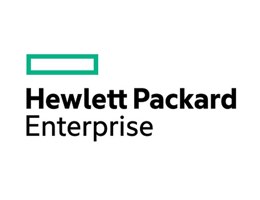 Today at SC15, Hewlett Packard Enterprise (HPE) announced that more than a third of the HPC market is leveraging HPE Compute platforms. Among the organizations using HPE solutions are The Pittsburgh Supercomputing Center, Texas Advanced Computing Center at the University of Texas at Austin, the National Renewable Energy Laboratory, Ghent University and the Academic Computer Centre Cyfronet. They use HPE solutions based on the HPE Apollo server line to solve some of the world’s most challenging problems in science and engineering. HPE also announced the first solution deployments resulting from the HPC alliance with Intel.
Today at SC15, Hewlett Packard Enterprise (HPE) announced that more than a third of the HPC market is leveraging HPE Compute platforms. Among the organizations using HPE solutions are The Pittsburgh Supercomputing Center, Texas Advanced Computing Center at the University of Texas at Austin, the National Renewable Energy Laboratory, Ghent University and the Academic Computer Centre Cyfronet. They use HPE solutions based on the HPE Apollo server line to solve some of the world’s most challenging problems in science and engineering. HPE also announced the first solution deployments resulting from the HPC alliance with Intel.
Organizations of all sizes are struggling with effectively managing and processing the growing volume, velocity and variety of data,” said Bill Mannel, vice president and general manager, HPC, Big Data and IoT, HPE Servers. “HPE is rising to the occasion with our leading portfolio of purpose-built HPE Apollo systems and comprehensive solutions, as well as partner ecosystem, to deliver extreme performance, scale and efficiency for HPC and big data innovation.”
HPE Compute solutions experiencing momentum in government and academia
Government labs, as well as public and private universities worldwide, are using HPE Compute solutions to conduct research across scientific disciplines, develop new drugs, discover renewable energy sources and bring supercomputing to nontraditional users and research communities. New customers and recent extensions to existing deployments include:
- Texas Advanced Computing Center (TACC)– Hikari, TACC’s HPE Apollo 8000 installation, harnesses 432 HPE Apollo 8000 XL730f servers coupled with HPE ProLiant DL380 and DL360 nodes that are interconnected with Mellanox EDR 100Gb/s InfiniBand solutions to deliver a unique hybrid configuration for the exploration of alternate supercomputing energy sources.
- The U.S. Department of Energy’s National Renewable Energy Laboratory (NREL) – NREL’s Peregrine supercomputer is the first implementation of the HPE Apollo 8000 platform and was named the most significant innovation by R&D Magazine in 2014. In October, the lab expanded Peregrine’s compute capability by an additional petaflop in response to high demand for compute time. Peregrine is being used to advance energy efficiency and renewable energy technologies, and its energy-efficiency and waste heat capture feature combine to save NREL approximately $1 million per year in operations costs.
- Academic Computer Centre Cyfronet – Academic Computer Centre Cyfronet as the leading provider of computing power for Polish science is committed to address the increasing demand for HPC resources. Prometheus, warm-liquid cooled HPE Apollo 8000 system, delivers 2.4 petaflops of compute power in only 20 racks, requiring no more than 850 kW of power to operate. The new system allows Cyfronet to provide high-end HPC system in the most budget-efficient manner, without any compromise on the performance or capabilities.
- Ghent University in Belgium– The University is using the HPE Apollo 6000 System in a dense, energy-efficient implementation to address the growing demand for HPC in bioinformatics, engineering and statistics, while controlling costs and optimizing operational efficiency.
- Pittsburgh Supercomputing Center (PSC) – To bring HPC and big data resources to new research communities, PSC is implementing HPE Apollo 2000, HPE Integrity Superdome X and HPE ProLiant DL580 servers for its Bridges system. This solution, which is based on the Intel® Scalable System framework and features the Intel Omni-Path Fabric, is the first customer success from the strategic alliance that HPE and Intel announced in July 2015 to advance customer innovation and help expand the accessibility of HPC.
“Bridges represents a new approach to supercomputing that will help researchers address problems in diverse, data-intensive fields, such as genetics, the natural sciences and the humanities, where scientists are impacted by the volume of data rather than computational speed,” said Nick Nystrom, director, Strategic Applications, PSC. “We’re partnering with Hewlett Packard Enterprise and Intel to provide National Science Foundation users and university campuses easy access to HPC resources through Web interfaces, fostering greater collaboration among researchers in the process.”
HPE Apollo partner ecosystem continues to grow to deliver customer benefits
HPE’s partner ecosystem in big data and HPC is attracting a powerful network of industry leaders in semiconductors, storage and networking to address organizations’ needs with fully integrated, highly tuned, purpose-built HPC Solutions
Ecosystem partners include:
- Mellanox Technologies – HPE and Mellanox are enabling customers with improvements in performance benchmarking and application level testing capabilities to build highly efficient and scalable clustered solutions with less complexity, in less rack space, while reducing total cost of ownership.
- NVIDIA Corp. – The Nvidia Tesla K80 GPU, the flagship offering of the NVDIA Tesla Accelerated Computing Platform, currently powers multiple HPE Apollo product lines in energy-efficient datacenters in government labs, universities, service providers, enterprises and small- and medium-size businesses around the world.
- Seagate Technology –As part of a new strategic reseller agreement, HPE has added Seagate’s ClusterStor 1500 and 9000 appliances into its HPC and big data ecosystem of solutions.
Visit HPE booth #603 at SC15.
See our complete coverage of SC15 * Sign up for our insideHPC Newsletter



